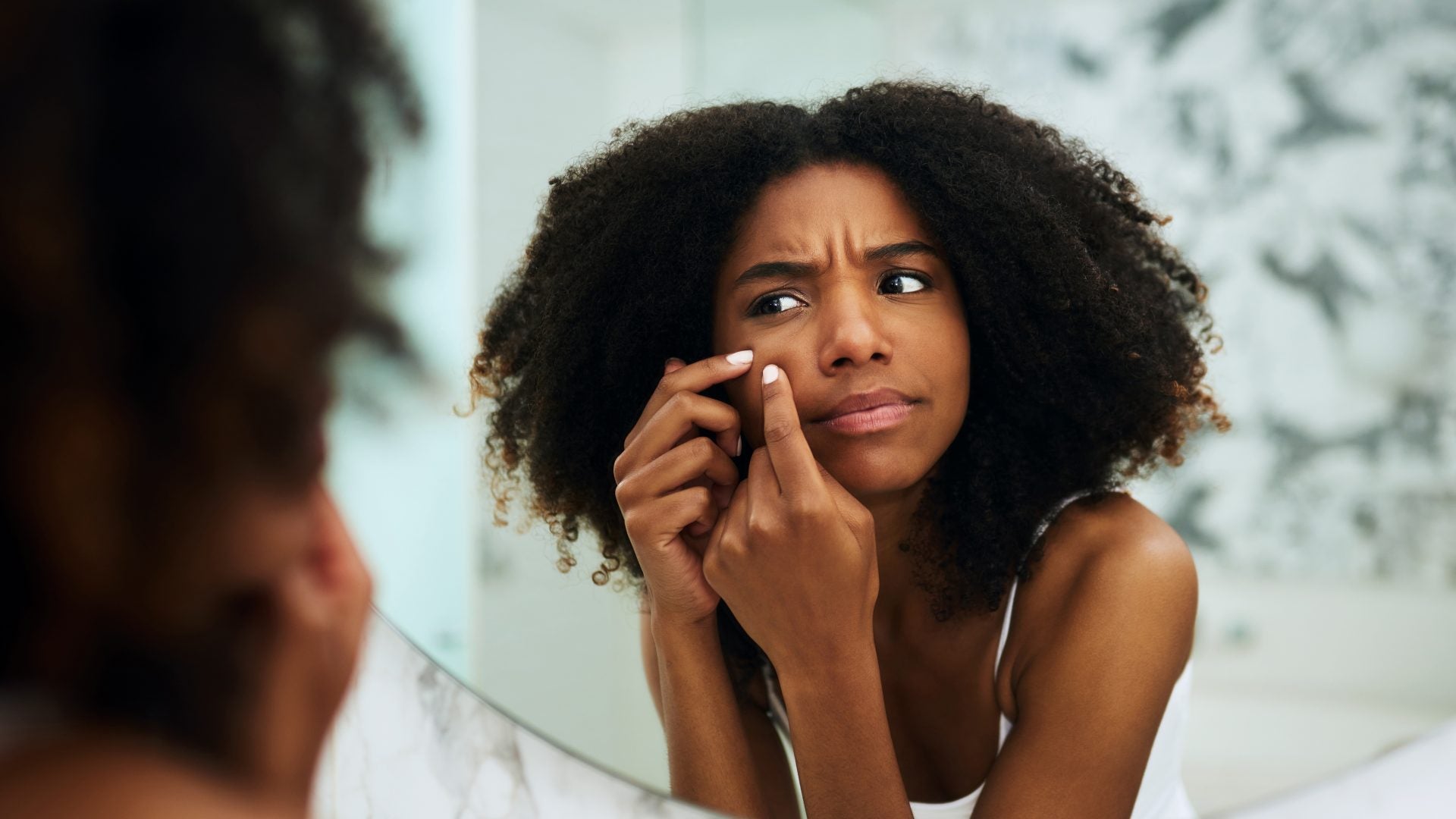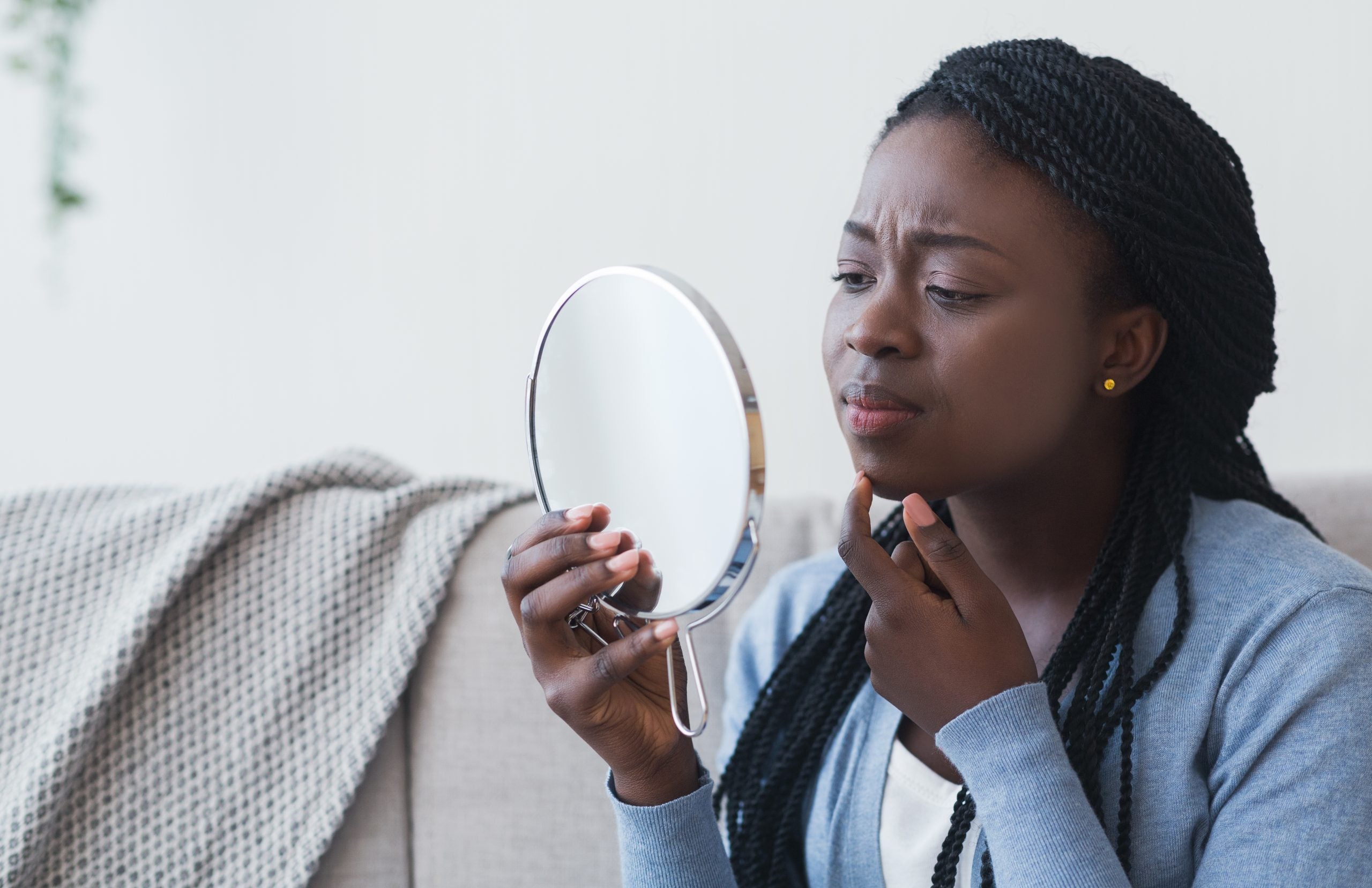
When it comes to battling common skin issues like acne, scarring and hyperpigmentation, there isn’t a one-size-fits-all approach. There are tons of products on the market that promise to lighten and even erase the appearance of dark spots on the skin caused by inflammation or injury. As you may have experienced, not all of them live up to the hype.
Clearing up hyperpigmentation on darker skin tones is an even more complicated task, because not all methods and products were made with melanin in mind. Intensive procedures like chemical peels or laser treatments can end up doing more harm than good, especially if the esthetician you’ve sought out doesn’t specialize in treating darker skin tones. So how are Black women to know what exactly works for them when it comes to lightening dark spots?
We reached out to Dr. Caroline Robinson, founder of Tone Dermatology and a stauch advocate for diversity in the dermatology realm. Her sage advice on how to treat and prevent hyperpigmentation may be the skincare gamechanger that leads to the glowy skin you’ve been dreaming of.
Why does hyperpigmentation tend to be especially pesky for Black women/women with darker skin tones?
For individuals with darker skin tones, excess pigment production leading to hyperpigmentation can occur quite easily because of the higher concentration of melanin within the skin. Most forms of hyperpigmentation are caused by excess production of melanin and something we need better education on within the community is that UV light itself stimulates melanocytes (our pigment-producing cells) to make more pigment. Understanding this fact makes it easier to appreciate why sunscreen should be our first line of defense against hyperpigmentation.
Melasma is a common condition that leads to hyperpigmentation including in those with deeper skin tones. However, any skin injury, rash, or pimple can create enough inflammation to trigger our melanin-producing cells and cause excess pigmentation.

What are some common missteps Black women in particular tend to make when trying to address hyperpigmentation?
One of the biggest and most common misconceptions I hear when treating hyperpigmentation is that you don’t need sunscreen. Sunscreen is extremely important in protecting the skin from harmful UVA/UVB rays and also for helping prevent future hyperpigmentation while healing past discoloration. I like ISDIN’s Eryfotona Ageless because the sunscreen is lightweight, blends in very easily, and contains iron oxide, an ingredient known to be helpful in protecting skin prone to hyperpigmentation against the effects of visible light.
There are so many different factors that contribute to conditions of hyperpigmentation including inflammation, hormones, pollution, the sun, and genetics
Another misconception that I hear often is that there is one holy grail dark spot corrector that will treat hyperpigmentation. Often times, you’ll need many treatments over an extended period of time because of how complex the enzymatic steps are that take place within the melanocyte producing excess pigment. The most important thing I try to educate patients about is that there are so many different factors that contribute to conditions of hyperpigmentation including inflammation, hormones, pollution, the sun, and genetics to name a few. Because of this, the treatment for any type of hyperpigmentation needs to target discoloration from multiple angles.
There are many treatment options available for hyperpigmentation, but women of color must be careful and rely on qualified healthcare professionals who are experienced in treating dark skin tones. In-office chemical peels and microneedling with and without platelet-rich plasma can be useful depending on the cause of the hyperpigmentation. In my office, I often use a nonablative 650 microsecond 1064nm laser to deliver energy in a safer and more gentle manner which can be very helpful for stubborn hyperpigmentation. I recommend that patients with deeper skin tones discuss options for treatment of existing hyperpigmentation and discoloration with a board-certified dermatologist who has a declared interest in treating skin of color.
What tips can you offer women who are trying to get out of the habit of popping pimples and/or touching their face?
It is important to realize that what you are doing is inevitably causing more harm than good. Manipulating a pimple increases the risk of hyperpigmentation as well as scarring and you may even introduce bacteria into the lesion which can make the pimple more inflamed and much more difficult to treat. One of the most impactful things that you can do is seek care from a dermatologist. Treating your acne early when there is minimal scarring and hyperpigmentation is a step toward your long term skin health and will ensure that there are little or no spots to pick down the line. In the meantime, I encourage patients to dispose of their magnifying mirror to prevent themselves from finding blemishes that might have otherwise gone unnoticed. Find hobbies to distract yourself from picking.